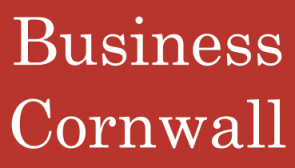Local businesses have been commenting in the wake of this afternoon’s Emergency Budget from the Chancellor of the Exchequer.
Claire Eason-Bassett, a director of Event Cornwall, an event management company based in Truro, said: “As a small and relatively new business, this large rise in VAT to 20% will have a significant impact on us. On a practical level, the administration involved in adjusting VAT for the second time in short succession will hit small teams and independently-run businesses.”
And she fears the impact it might have on the creative sector in Cornwall. “In particular in Cornwall we’ll see a drop in funding for the creative and cultural sectors through heavy public sector cuts. The cultural industry is a massive part of our economy here. Arts Council England, for example, will be restricted in its funding pot, which is a lifeline for many grant-funded arts projects in Cornwall. The cultural sector will be forced to find alternative sources of sustainable funding to keep creativity alive in the South West.”
Christian Wilson is a partner and head of commercial law at Coodes Solicitors. He predicts that despite the rise in VAT there are silver linings.
“We work closely with businesses both large and small across Cornwall and Devon, and we predict that the 2.5% increase in VAT will be a difficult pill to swallow,” he said.
“Independently run shops and tourism businesses, for example, may be forced to swallow the increase to remain competitive against the larger retailers. Smaller consultancy or service-based businesses could be affected by clients struggling to pay the additional VAT on their bills.
“With cuts to the public sector imminent, we’ll be relying on the private sector to forge the exit route from this delicate economic climate.”
“We do, however, welcome some positive steps for businesses including the National Insurance measures taken to encourage recruitment of new staff, the pegging of duties on fuel and reductions in corporation tax over the next four years which may well make limited company status a more attractive business vehicle.
“Business owners form the backbone of our economy in the South West. With cuts to the public sector imminent, we’ll be relying on the private sector to forge the exit route from this delicate economic climate.”
Simon Tregoning, managing director of Classic Cottages, which markets around 700 high-quality holiday properties across the south west, welcomed the Chancellor’s decision to retain the current rules on furnished holiday lets, but said consultation was now crucial on any future changes:
“This is great news for tourism across the West Country,” he said, “and personally I’m pleased they’re back, however, I’m calling on the Government to fully consult the industry if the rules are to be adjusted in any way. I would like George Osborne and his team to fulfil David Cameron’s explicit promise, made in Cornwall five days before the election, to consult fully before making any changes on FHL.”









